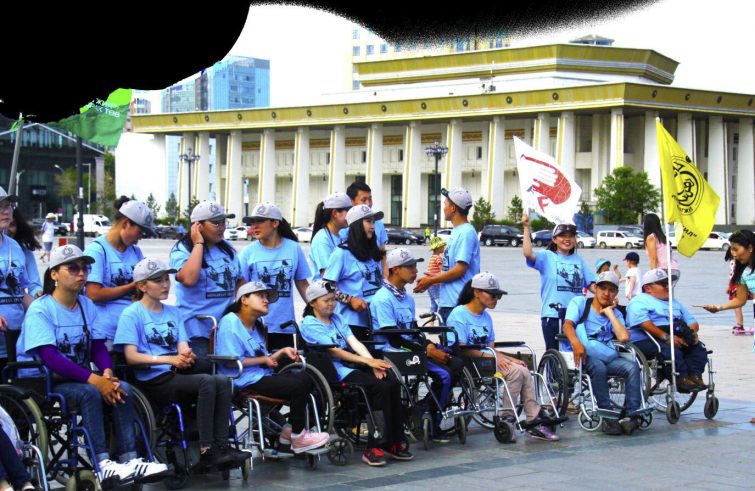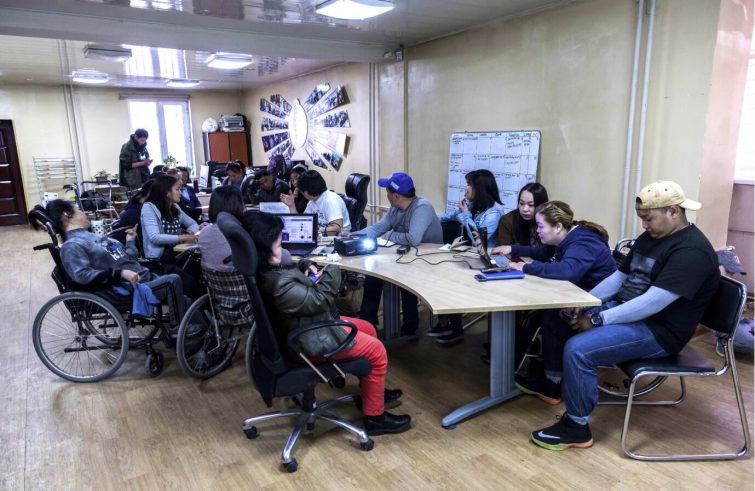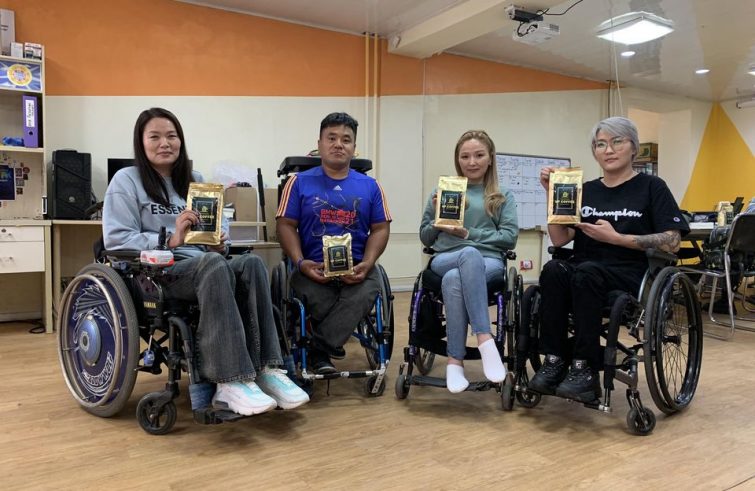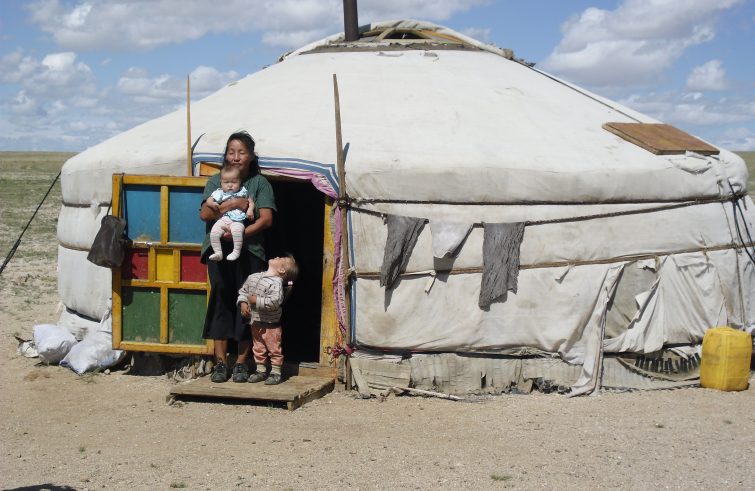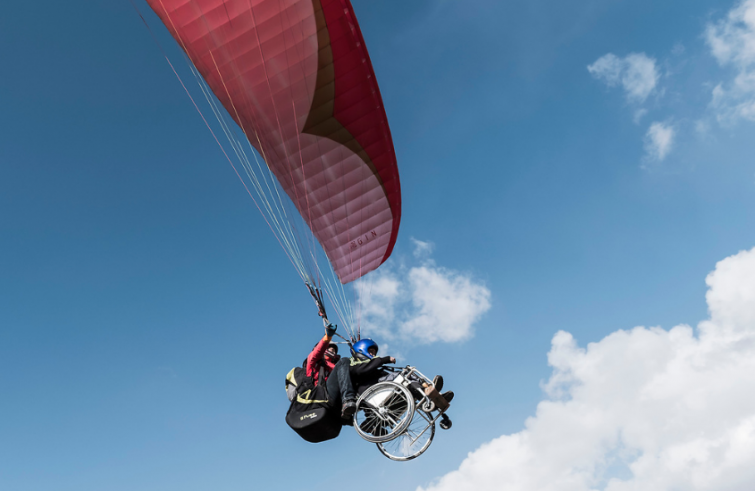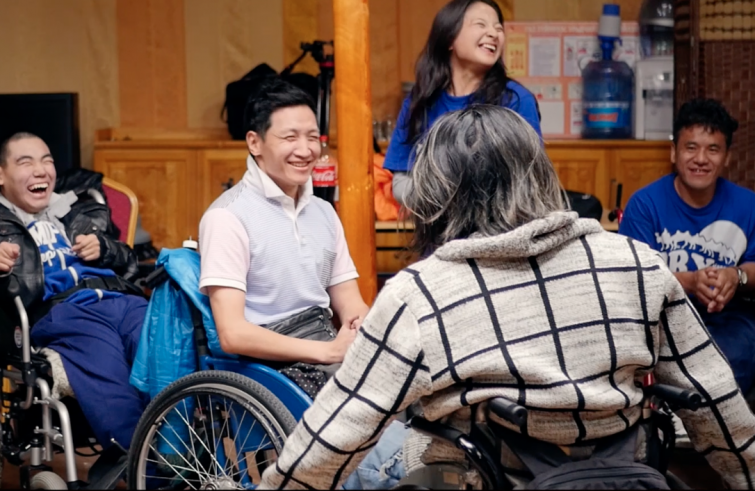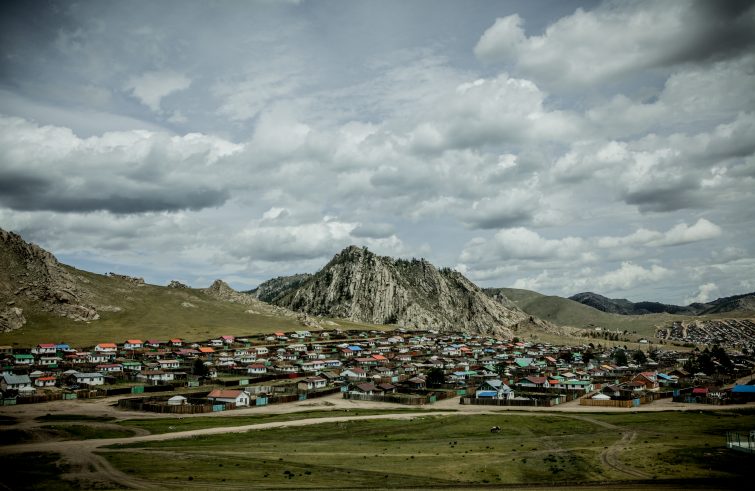
“We are overjoyed that Pope Francis will be visiting Mongolia. AIFO has been working in the country for 32 years and we are very proud of our work there because it shows that the programmes and plans we adopt and implement produce concrete results not only for our concerned persons – we prefer not to call them beneficiaries – but also for the government and civil society. In our approach to disability, even in Mongolia, we started by enhancing human dignity, ensuring occupation, autonomy, health and education. More than 30 years have passed and we can say we have contributed significantly to making Mongolia an inclusive country,” said AIFO President Antonio Lissoni, commenting on the Pope’s apostolic visit to Mongolia. Francis arrived at Ulaanbaatar’s “Chinggis Khaan” International Airport this morning at 10 a.m. (local time), having left Rome/Fiumicino International Airport yesterday evening at 6.30 p.m. Tulgamaa Damdinsuren, AIFO’s national coordinator in Mongolia, discussed the the situation in Mongolia with SIR.
What are the main challenges facing Mongolia today – be it economic, health or social – and what are the biggest challenges for people with disabilities?
Mongolia is a post-Soviet country. We are still experiencing a period of transition in all areas of society. Before 1990, not much was done for inclusion of people with disabilities other than social services. There were only two organisations for people with disabilities and one factory for the visually impaired. With the establishment of democracy, all citizens were allowed to set up their own organisations and associations.
There are now around 450 organisations of people with disabilities, supporting over 100,000 people with disabilities in the country.
Everyone, including people with disabilities, has the freedom to express their opinions and views. However, there are still many who are unaware of their rights, especially those living in remote areas. In addition, human rights are often violated and the infrastructure is not well developed and inclusive. Most people with disabilities live in extreme poverty because the monthly disability allowance is not enough to make ends meet. For this reason, AIFO is committed to ensuring the successful inclusion of persons with disabilities in the country.
What projects do you run in Mongolia? What is the target group of your initiatives?
AIFO has been running Community Based Rehabilitation (CBR) projects for people with disabilities for more than 30 years. Empowering and supporting local organisations of persons with disabilities (OPD) to become the leading agents of development in the country is very important in our work.
Our main activity is to empower people with disabilities.
Do you carry out your projects in cooperation with local associations?
AIFO works with the local NGO Tegsh Niigem (“Full Equality”).The core vision of Tegsh Niigem is to implement the CBR approach and the UN Convention on the Rights of Persons with Disabilities (CRPD). Many relevant projects have been implemented in cooperation with Tegsh Niigem, especially at the political level. As a result of the various projects, Mongolia ratified the CRPD and its Optional Protocol in 2009. The first Disability Rights Law was adopted in 2016. The OPDs had the opportunity to submit its Shadow Report to the UN Platform (CRPD Committee) three times (2015, 2018 and 2023). AIFO and Tegsh Niigem are playing an active role in this significant development in the field of disability in the country. We are very proud of this.
How many years have you been working in Mongolia? Have you noticed any changes in the social and health sector and in the problems faced by people with disabilities?
AIFO started its mission in 1991, when it first met a Mongolian officer from the World Health Organisation (WHO) Regional Office. In 1996, AIFO established its representative office in Mongolia. At that time Mongolia was a post-Soviet country in which people with disabilities were considered to be mere recipients of social assistance. However, after 30 years in the country and thanks to various activities conducted by AIFO and local partners, disabled people are beginning to advocate their human rights. Public attitudes have also changed.
Mongolia is now trying to move from a medical approach to disability to a social approach. Indeed, people with disabilities are now free to express their opinions, to negotiate safely and competently, and to defend their rights. In fact, AIFO’s biggest contribution has been to change attitudes towards people with disabilities in the health and social sectors.
Mongolia is also a very large country. Does this complicate the provision of services? How do you overcome this difficulty?
Mongolia is a very big country, five times the size of Italy. A third of the population is nomadic.
It has a very harsh climate, people living in remote areas face the greatest difficulties, and persons with disabilities in particular face the greatest challenges when it comes to receiving the benefits to which they are entitled.
The Pope has arrived today: are the people of Mongolia looking forward to this visit?
For Mongolia, it is a great opportunity for understanding and openness, it is a periphery of the world that the Pope wants to meet, and this can only be a positive message.
The Mongolian Catholic Church is young, about one per cent of the population identify as Christian. However, I am confident that the members of other religions will see this opportunity for encounter and dialogue in a positive light, because of its ecumenical scope.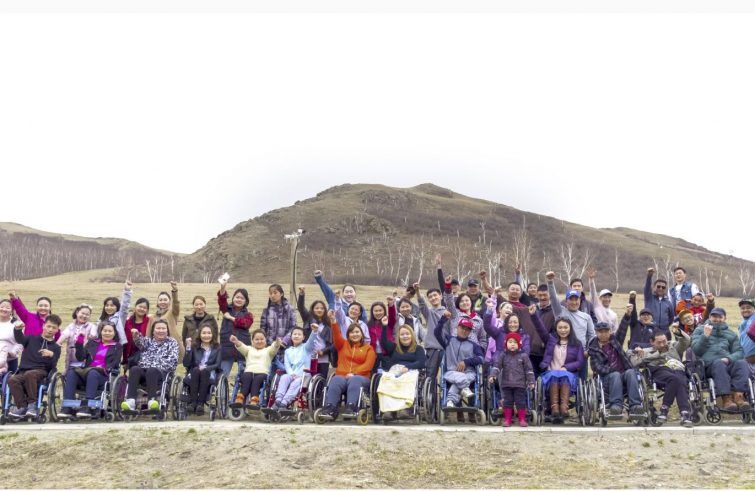
(Foto: Aifo)
What fruit would you like to see from Pope Francis’ visit?
We were deeply touched by the motto of the Pope’s visit, ‘Hoping together’, because it sums up the meaning of our presence in the country. Hoping is not a passive action, it is a change of perspective and the sharing of a common vision.
As our inspirational figure Raoul Follereau used to say: ‘There is one heaven for the whole world’, which means that only together can we live in peace and mutual respect, working together so that no one is left on the margins of society.

